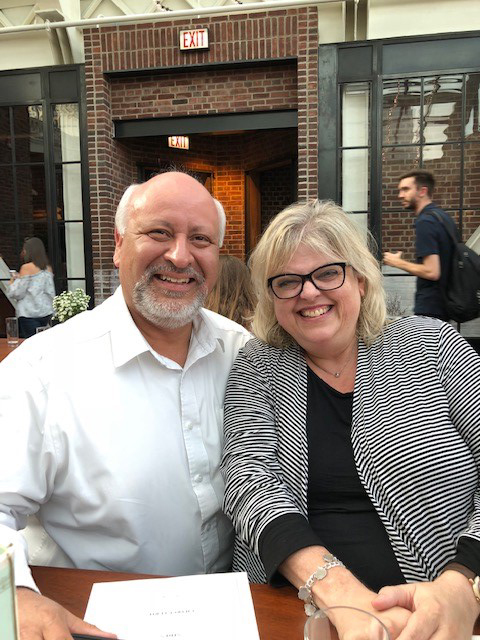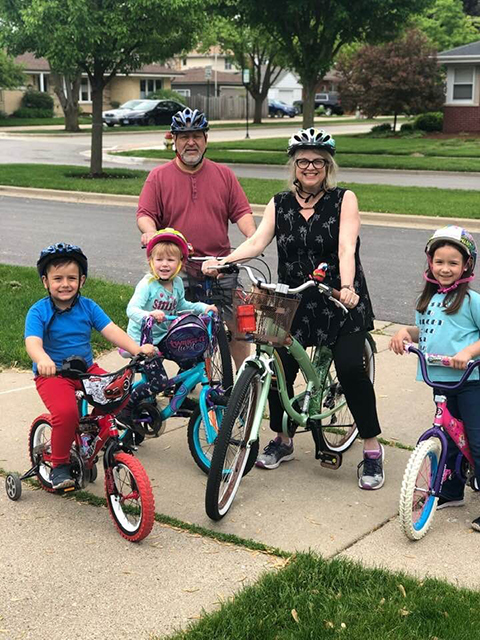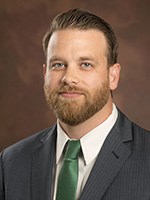Gastric bypass patient says goodbye to old habits, extra pounds and insulin
June 24, 2019

For most of her life, Vicki Mesa of Mount Prospect struggled with her weight. But after undergoing gastric bypass surgery with Benjamin Veenstra, M.D. and participating in the Comprehensive Weight Management Program under the direction of Monika Cohen, M.D., she’s now learning the difference between head hunger and real hunger, as well as what it means to live a healthy life.
“I was scared I was going to die,” says the 58-year-old grandmother, adding that she watched her sister-in-law die from obesity at 56. “I didn’t want that to be me.”
Vicki’s obesity led to diabetes that escalated to a dangerously high (A1C) sugar level of 10.5 (normal is 4.5 to 6.4). She was needing more insulin each year, and in 2018, she was up to 80 units daily, plus a weekly shot. She also needed blood pressure and cholesterol medications.
I got bruises from giving myself shots,” she recalls. “The medication was expensive, even with insurance. And the irony was that a side effect of one medication was weight gain.”

Along her journey, Vicki changed jobs – from working downtown and walking a lot to driving. This caused more weight gain. Also, she lost her mother, her last living parent, which led to stress eating.
So she made the decision to explore gastric bypass surgery (which shrinks the stomach and reroutes the intestines) and spoke with Dr. Cohen, who she’d been seeing for weight management.
“She said, ‘I think you’d be a perfect candidate,’” Vicki says. “I had to see a psychologist and go through a lot of tests.”
During those tests, she learned she had more health problems. “Not only did I have a severely fatty liver, but the beginning stages of cirrhosis of the liver,” Vicki says.
Dr. Veenstra says Vicki met all of the pre-operative qualifications, which are a BMI of 40 or above, or a BMI of 35 to 39.9 coupled with a morbidity such as diabetes.
She moved to the next step, an online class to learn about the surgery and what she’d need to do before and after it. She learned she would not be able to eat large amounts of food or beverages after the surgery, and she’d have to monitor her food intake and take advantage of support offered through the program.
Her surgery, performed in September 2018, involved reducing the size of her stomach by creating a small pouch at the top and disconnecting it from the rest of the stomach. Dr. Veenstra then rerouted her small intestine, which reduces the amount of absorption that takes place in the digestive system.
“The food goes straight from the esophagus into a small gastric pouch and then immediately into the small intestine,” Dr. Veenstra explains.
The surgery restricted the amount of food Vicki could consume, making her feel full faster, thus curbing her appetite. Dr. Veenstra felt Vicki did well because she understood that behavior change is essential to success.
“The patient has to be 100 percent on board with the entire process,” Dr. Veenstra says. “Vicki’s done well because she’s done what’s required for success post-op.”
Today, Vicki is down 91 pounds and no longer requires insulin. Her blood pressure is normal, and she doesn’t need to sleep with a CPAP machine anymore. She takes only one medication and expects to be weaned off of it soon.
“This is an operation that can cause remission of diabetes, which to me is one of the most exciting things about it,” Dr. Veenstra says. “Not having to be on insulin is a huge lifestyle change.”
With counseling, Vicki is no longer controlled by food, and she’s living a “fuller” life.

“My husband Bill and I have been riding bikes with our two granddaughters and grandson and they’re just shocked at how much more energy I have,” Vicki says. “This was definitely a good experience all the way around and it was the right thing for me to do. I’m going to have a productive, quality life.”
The greatest news came in an email from Dr. Cohen, which read: “I’m so pleased to tell you that your Fibroscan now shows no signs of cirrhosis (of the liver).”
To anyone thinking of having gastric bypass surgery, Dr. Veenstra suggests having a conversation with a specialist.
“It never hurts to talk to someone or to learn more,” he says. “The No. 1 thing I tell patients is that this journey doesn’t end with surgery. We take the time to teach you how to be successful.”
To schedule an appointment with the Comprehensive Weight Management Program, call 847-618-1640. Learn more at nch.org/treatment-care/comprehensive-weight-management.
No case is the same; results may vary.